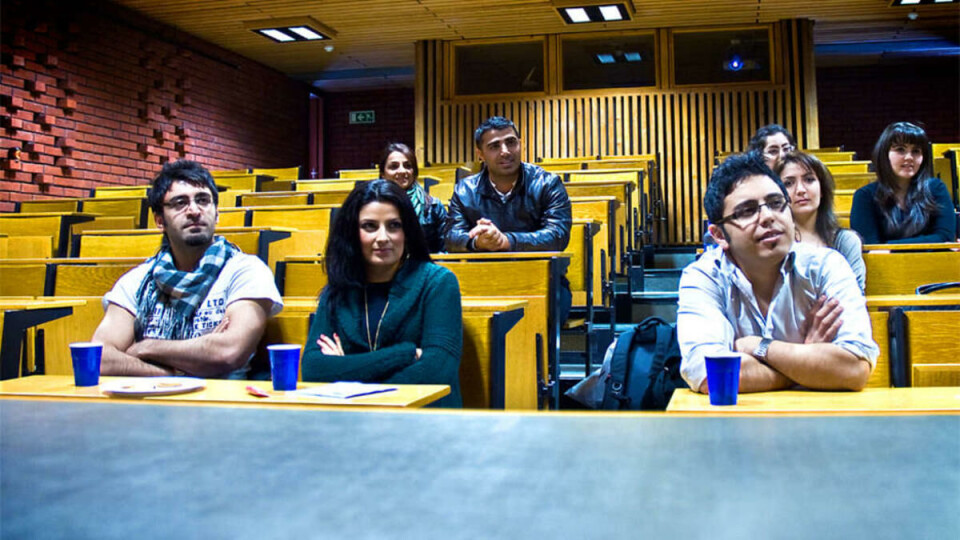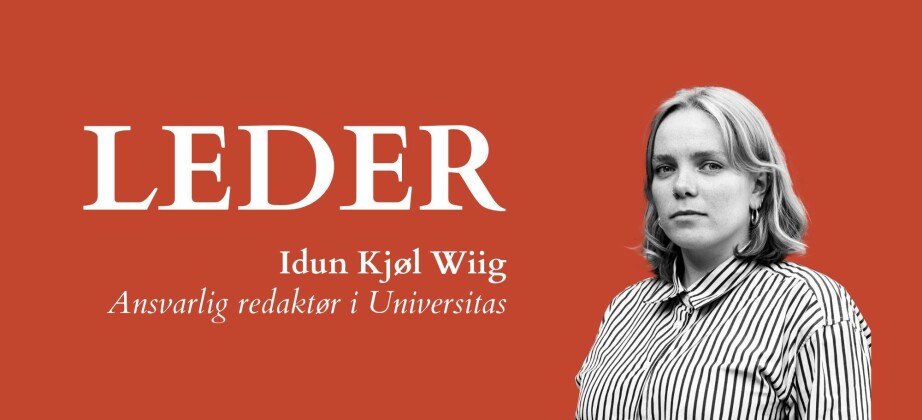
Middling benefits from studies
Former UiO students get jobs, but do not believe that they have benefited from their studies, according to a new survey.
Graduates from the University of Oslo (UiO) give the collected benefits of their studies a score of three on a scale from one to five, according to the Graduate Survey that was publicized this week. The report concludes that the score is «low and below par for a leading national educational institution like UiO.»
– When students assess the benefits of their education in this way, we have a fair way to go before we can say we’re satisfied, says Heine Skipenes, leader of the Student Parliament.
The graduates stated that the aspect of their education that they have benefited the most from was the emphasis on analysis and method (3,4). Dragging down the average score was attainment of leadership skills (2,9) and competence for working life (2,8).
Graduates from aesthetic studies at the Faculty of Humanities (HF) are among those who felt they benefited the least from their studies. They rated their competence with regards to working life as 2,1 on a scale from one to five.
Former master’s student of aesthetics, Heidi Bale Amundsen, recognizes her own situation in these results, but does not believe that the lack of competence with regards to working life necessarily reflects poorly upon the study.
– I always knew that a degree at HF was not a vocational study.
She gained competence for working life through part time jobs alongside her studies.
– It has been positive that the studies have not been too narrow, but have given me a broad angle on things. I have benefited from this in working life, she states.
Yet more than 44 percent replied that they lacked practical and vocational knowledge and contact with working life during the course of their education.
A wonderful job market
Despite not getting the maximum benefit from their studies, graduates seem to have little trouble finding work. 9 of 10 replied that they were in work, and 8 out of 10 were satisfied or very satisfied with their job. 60 percent also replied that they would choose the same or an equivalent study at UiO again.
Vice rector Inga Bostad believes that it would be beneficial if there was more interaction between working life and students, but is generally happy with the results of the survey.
– UiO must be allowed to be a bit happy about the results, without getting self-critical straight away, she says.
It seems as though the results have been given a positive welcome by several others as well. Project leader Simen Rud could report that the mood was very cheerful when the survey was presented to the press and politicians on Monday.
Yet several people have pointed out that the situation on the job market was very good when the survey was carried out, and that this may explain some of the positive results. Bostad agrees.
– The statistics are the result of a positive time in the job market, and it is clear that things will change in the immediate future, she says.
































